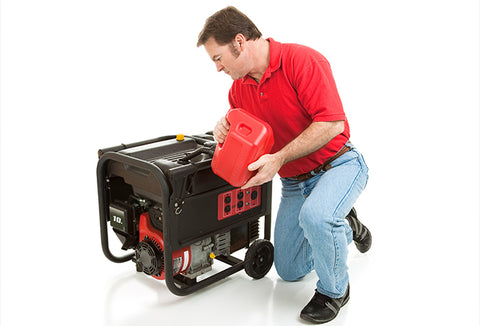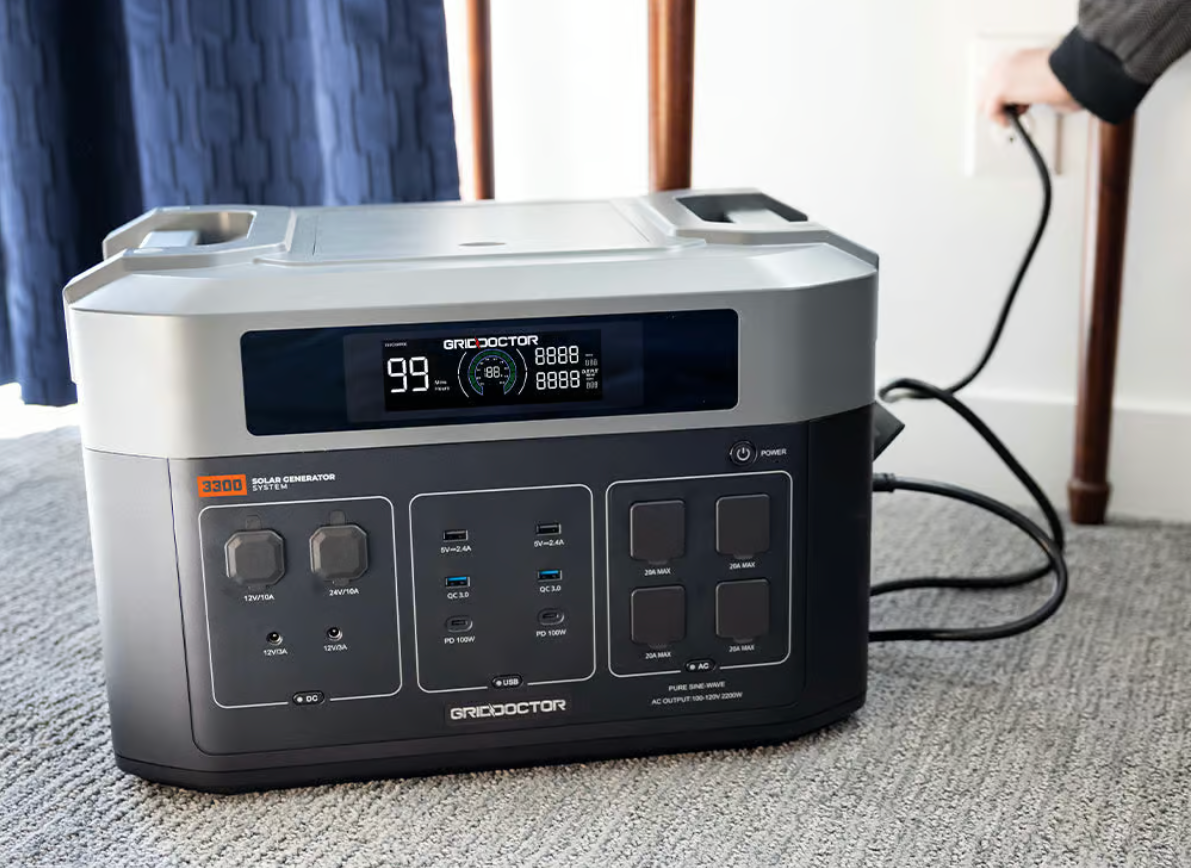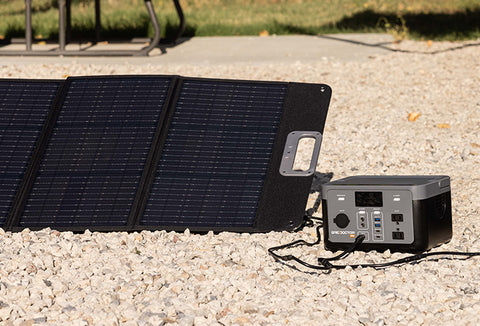In the face of an emergency, whether it's a natural disaster or widespread power outage, there is one tool many people wish they would have added to their emergency supply: a generator.
Generators are more than just a convenience; they are often lifelines, providing the electricity we need to keep our homes running and our families safe. However, not all generators are created equal.
Follow along as we dive into why generators are essential in emergencies and which generator is right for you.
Related Read: Electric Innovation: Making Everyday Appliances Accessible in Emergencies

Why You Need a Generator
Generators serve multiple critical functions during emergencies:
- Emergency Power Supply: They offer an immediate alternative power source during outages, ensuring that essential appliances and medical equipment continue running.
- Supporting Critical Infrastructure: In community settings, generators help maintain the operation of hospitals, emergency services, and communication networks when they're needed most.
- Food Preservation: A refrigerator full of milk, eggs, and other perishables will spoil quickly without power. A generator can keep refrigerators and freezers running, preventing you from losing that much-needed food.
- Climate Control: No one wants to handle the middle of summer or winter without air conditioning and heating. Generators can help keep these systems operational, ensuring safe living conditions any time of year.
- Communication: Your phone can be a lifeline in an emergency, but it can’t run forever. A generator will keep batteries charged and ready to use so you stay informed and connected.
- Security: In the wake of disaster, it's not unheard of for chaos to take control. A generator can ensure that security systems continue functioning to protect homes and businesses.
- Maintaining Your Business: Businesses are not immune to power outages. Keeping a generator on site is critical to keeping your business operational through tough times.
- Recovery: After disaster, rescue and rebuilding are top priorities. Unfortunately, some areas can remain without power for days or even weeks. Generators can be used to power tools, equipment, and temporary facilities to help facilitate the rebuilding process.
Solar Generators vs. Gas Generators
When choosing a generator, the main options are solar and gas. Each has its advantages and disadvantages, especially in emergency scenarios.

Gas Generators: The Traditional Powerhouse
Gas generators are the more traditional choice and are known for their reliability and high power output.
- High Energy Output: Gas generators are known for their substantial energy output, making them capable of powering entire homes, including large appliances like refrigerators, heaters, and air conditioners. This high energy output is particularly beneficial in severe emergencies where maintaining power is crucial for comfort and safety.
- Immediate Power: One of the most significant advantages of gas generators is their ability to provide instant electricity. Once fueled with gasoline or propane and then started, they begin generating power immediately. This feature is incredibly useful in sudden power outage situations, such as after storms and other unforeseen events.
- Availability: Gas generators are a popular choice and, as a result, are widely available in various models and sizes. This availability means that you can usually find a generator that fits your specific power needs and budget.
On the downside, gas generators require a steady supply of fuel, which can be challenging to store and replenish during prolonged crises. They also emit noise and fumes, requiring them to be operated outdoors and may draw unwanted attention. Regular maintenance is also required to keep gas generators running properly.
Solar Generators: The Sustainable Choice
Solar generators use energy from the sun, providing a renewable and eco-friendly power source. They are particularly advantageous in emergencies due to several factors:
- Renewable Energy: As long as there's sunlight, solar generators can produce electricity. This reduces dependence on traditional fuel sources and ensures a continuous power supply regardless of your access to other resources.
- Low Maintenance: With fewer moving parts compared to traditional generators, solar generators require less upkeep. This makes them a more reliable and hassle-free solution during times when maintenance tools may be limited.
- Quiet Operation: Solar generators operate quietly without the noise associated with traditional fuel-powered generators. This makes them ideal for residential use, or when you don’t want to draw attention to yourself.
- Independence From the Grid: Reduce your reliance on the grid and traditional fuel sources when you have a solar generator in tow. Perfect for use at home, in your cabin, or camping when access to electricity is limited.
- Portability: Many solar generator models are portable, making them suitable for various locations and situations. If you have to leave home, you can take power along with you.
- Versatility: Depending on the size of your solar generator, they can power anything from small electronics to larger appliances.
- Long-Term Power Supply: As long as there is sunlight, solar generators can continuously produce power giving you a long-term solution for extended emergencies. This is particularly advantageous when traditional fuel sources may be scarce or difficult to find.
- Quick Setup: Solar generators can be set up quickly and easily, providing immediate access to power without the need for complex installation or fuel transportation.
However, solar generators depend on sunlight and may have limitations during cloudy or rainy conditions.
Keep the Power Coming in Crisis with the Grid Doctor
If you’re looking for an easy-to-use solar solution, we suggest the Grid Doctor. Available in 320-watt and 2200-watt models, Grid Doctor solar generator systems are a comprehensive solution that exemplify the advantages of solar power in emergencies. Here's how:
- Solar and AC Charging: Flexibility is crucial in emergency preparedness, and the Grid Doctor can be charged using solar panels or through a standard AC outlet. This dual-charging capability ensures you can keep the generator ready to go, whether you're off-grid or preparing for a potential power outage at home.
- Portable and Durable Design: Designed for both efficiency and portability, the Grid Doctor is easy to move and set up wherever it's needed. The durable build helps it withstand the rigors of outdoor use, a critical feature for a generator intended for emergencies.
- Multiple Outlets for Versatility: Equipped with multiple outlets, including USB, 12V, and AC, the Grid Doctor can power or charge multiple devices simultaneously.
- LCD Display for Easy Monitoring: The integrated LCD display provides real-time information on power usage, battery capacity, and charging status. This feature allows for efficient management of power resources and helps in planning the usage to ensure that power is available when most needed.
Both solar and gas generators have their place in emergency preparedness. The choice depends on individual needs, budget, and the specific circumstances you're preparing for.
By understanding the unique benefits of solar and gas generators, you can make an informed decision about which type best suits your emergency preparedness plan.



1 comment
MP Gunther
Get both